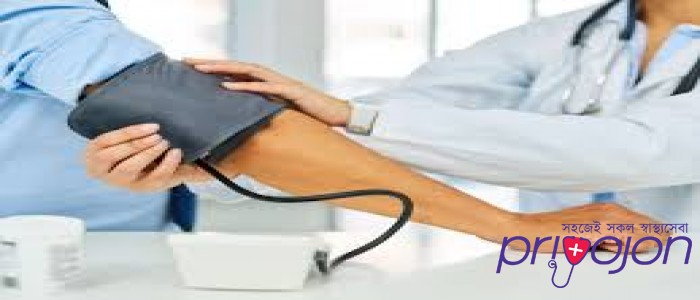
Overview
Medically reviewed by Dr. Rabeya Afroz Shomi
What is high blood pressure?
The heart is a muscle that pumps blood around the body. As it travels, the blood delivers oxygen to the body's vital organs.Sometimes, a problem in the body makes it harder for the heart to pump the blood. This could happen, for example, if an artery becomes too narrow.Persistent high blood pressure can put a strain on the walls of the arteries. This can lead to a variety of health problems, some of which can be life threatening.
Signs and symptoms :
Most people with high blood pressure will not experience any symptoms, which is why people often call hypertension the "silent killer."
However, once blood pressure reaches about 180/120 mm Hg, it becomes a hypertensive crisis, which is a medical emergency.
At this stage, a person may have:
- a headache
- nausea
- vomiting
- dizziness
- blurred or double vision
- nosebleeds
- heart palpitations
- breathlessness.
Symptoms in women :
Hormonal factors mean that the risk of high blood pressure may be different in males and females.
Factors that can increase the risk of high blood pressure in females include:
- pregnancy
- menopause
- the use of birth control pills.
During pregnancy, high blood pressure can be a sign of preeclampcia, a potentially dangerous condition that can affect the woman and her unborn baby.
Symptoms of preeclampsia include:
Symptoms of preeclampsia include:
- headaches
- vision changes
- abdominal pain
- swelling due to edema.
Causes :
High blood pressure can occur when certain changes happen in the body or if a person is born with specific genetic features that cause a health condition.
It can affect people with:
- obesity
- type 2 diabetes
- kidney disease
- obstructive sleep apnea
- lupus
- scleroderma
- underactive or overactive thyroid
- congenital conditions, such as Cushing's syndrome, acromegaly, or pheochromocytoma
Sometimes, there is no apparent cause. In this case, a doctor will diagnose primary hypertension.
Consuming a high fat diet, carrying excess weight, drinking a lot of alcohol, smoking tobacco, and the use of some medications also increase the risk.
